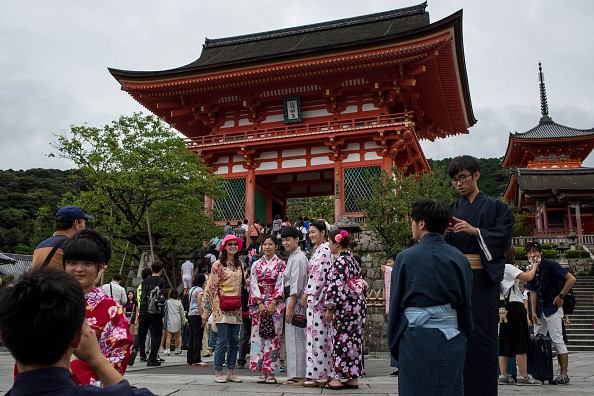Japan is a well-known destination for Chinese tourists, but companies from China have also started to take interest in the country’s tourism sector.
Take Shanghai Yuyuan Tourist Mart Co. Ltd. as an example. In November, the company announced its 100-percent acquisition of Hoshino Resorts Group's Resort Tomamu, an 11-year-old, 757-room ski resort in Japan's northernmost island of Hokkaido, for 18.36 billion yen ($148.7 million).
Shanghai Yuyuan purchased an 80-percent stake from Dutch investment fund Matakite BV and the rest from Hoshino Resorts Inc. The acquisition took effect on Dec. 1, although Honshino Resorts said it will continue to operate the business while Shanghai Yuyuan will make strategic plans and provide financial support.
Hoshino Resorts still owns 61.6 percent of Resort Tomamu's land assets as well as 36.3 percent of the property.
The resort's turnover has been rising quickly following its renovation in 2012. The compound annual growth rate of sales in the previous five years has reached 10 percent, while the CAGR for operating profit was as high as 43 percent.
In 2014, Resort Tomamu posted a net profit of 701 million yen on sales of 6.14 billion yen.
According to the Hokkaido Tourism Organization (HTO), Shanghai Yuyuan's acquisition was the first big-ticket Chinese investment in the island.
A growing number of Chinese corporate buyers have begun making enquiries about property prices in Hokkaido, although the reasons remain unclear, the HTO said.
Analysts speculate that Shanghai Yuyuan's interest in Hokkaido stems from the fact that the island has become one of the most popular destinations for Chinese tourists in recent years, particularly during the skiing season.
According to the HTO, almost 22.5 percent of Hokkaido's tourists in Feb. 2014 hailed from China. That number remained relatively unchanged until September this year.
The large presence of Chinese tourists in Hokkaido could have persuaded Shanghai Yuyuan to invest in Resort Tomamu, said Tang Jiarui, a senior analyst at Shanghai-based securities brokerage firm BOC International (China) Ltd.
Tang noted that Shanghai Yuyuan has reached in the Chinese market and, with 710 unused rooms in the resort, there is room for high growth in the future.
Wang Junjie, a senior researcher at Shanghai-based Shenwan Hongyuan Securities Co., said that the investment by Shanghai Yuyuan in Japan's tourist industry is in line with its current focus on business travel.
"Apart from hotels, catering, skiing and all kinds of outdoor activities that the resorts provide, the advanced management experience will be of great value to Shanghai Yuyuan as it strives to further enhance its service quality," Wang said.
Japan has been attracting more Chinese tourists and investors in the past several years. In May 2014, China's Fosun International Ltd. bought Japan's property management company Idera Capital Management Ltd. Incidentally, Fosun owns a 29.9-percent stake in Shanghai Yuyuan.
In Aug. 2014, the company purchased an office building in Shinagawa, Tokyo, followed by another building in the same area in December.
In the next five years, Shanghai Spring International Travel Service (Group) Co. Ltd., the parent of China's leading budget airline Spring Airlines, will partner with Japanese property developer Sunfrontier Fudousan Co. Ltd. in a 20-billion-yen investment that will see a chain of up to 20 hotels in Japan.
The yen's deprecation, coupled with Japan's loosened visa application process and more flights to the country, has led to a boom in Chinese tourists.
According to the Japan Tourism Agency, 4.28 million Chinese tourists have visited Japan during the first 10 months of this year, a near 100-percent increase year-on-year.
Chinese tourists are also among the biggest spenders in Japan, spending nearly 466 billion yen or 46.4 percent of total tourist consumption in the country.
During China's National Day holiday in October, nearly 400,000 Chinese tourists arrived in Japan, pumping an estimated 10 billion yuan in the Japanese economy in just a span of seven days.
Chinese companies, particularly those with overseas property investment plans, can ill afford to ignore such data, said Shi Jing, a reporter from China Daily newspaper, in a report published on Thursday.



























